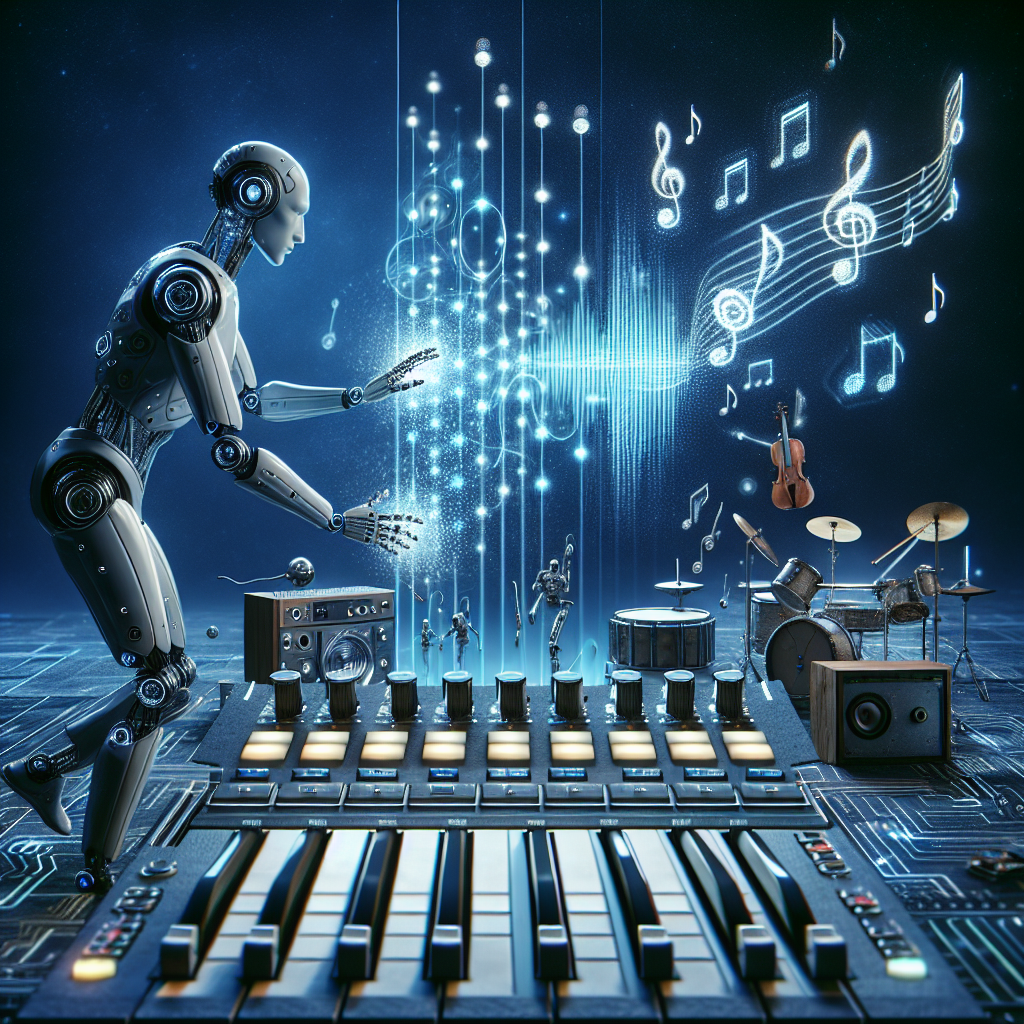The music industry has seen significant advancements in technology over the years, with the rise of AI music producers being one of the most recent developments. AI music producers are programs or algorithms that are able to compose, produce, and even perform music without any human intervention. This technology has the potential to revolutionize the way music is created, but it also raises important questions about the role of humans in the creative process.
AI music producers are able to analyze vast amounts of musical data and generate new compositions based on patterns and trends in existing music. This allows them to create music in a wide range of styles and genres, from classical to pop to electronic. Some AI music producers, such as Aiva and Amper Music, have already gained popularity in the music industry and have been used to create music for commercials, films, and even albums.
One of the main advantages of AI music producers is their speed and efficiency. They are able to compose music much faster than human musicians, and they can work around the clock without getting tired or needing breaks. This can be especially useful in industries where there is a high demand for music, such as advertising and film.
AI music producers also have the ability to learn and improve over time. By analyzing feedback and adjusting their algorithms, they can refine their compositions and create more sophisticated music. This means that AI music producers have the potential to continuously evolve and create music that is more innovative and unique.
However, the rise of AI music producers also raises concerns about the future of human musicians. Some worry that AI music producers could replace human musicians altogether, making them obsolete in the music industry. This could have far-reaching consequences for musicians, composers, and other music professionals who rely on their creativity and talent to make a living.
There are also concerns about the quality and authenticity of music created by AI music producers. While they are able to generate music that is technically proficient, some argue that they lack the emotional depth and personal touch that human musicians bring to their compositions. Music is a deeply personal and emotional art form, and some worry that AI music producers may not be able to capture the same level of nuance and expression as human musicians.
Despite these concerns, many in the music industry see the rise of AI music producers as an opportunity rather than a threat. They believe that AI technology can be used to enhance the creative process and push the boundaries of music in new and exciting ways. AI music producers can be used as tools to inspire human musicians, helping them to explore new ideas and experiment with different styles.
There is also the potential for collaboration between AI music producers and human musicians. By working together, they can combine their strengths and create music that blends the best of both worlds. Human musicians can bring their emotion and creativity to the table, while AI music producers can provide technical expertise and innovative ideas. This collaboration could lead to groundbreaking music that pushes the boundaries of what is possible in the music industry.
In conclusion, the rise of AI music producers is a fascinating development that has the potential to transform the music industry in significant ways. While there are concerns about the future of human musicians and the authenticity of music created by AI, there are also opportunities for collaboration and innovation that could lead to exciting new music. Whether humans will become obsolete in the music industry remains to be seen, but one thing is clear – AI music producers are here to stay.
—
FAQs:
Q: Will AI music producers replace human musicians?
A: While AI music producers have the potential to create music faster and more efficiently than human musicians, they may not be able to replicate the emotional depth and personal touch that human musicians bring to their compositions. Instead of replacing human musicians, AI music producers could be used as tools to enhance the creative process and inspire new ideas.
Q: Can AI music producers create original music?
A: AI music producers are able to generate new compositions based on patterns and trends in existing music, but there is debate about the originality and authenticity of the music they create. Some argue that AI music producers lack the emotional depth and personal touch of human musicians, while others believe that they have the potential to create innovative and unique music.
Q: How can human musicians collaborate with AI music producers?
A: Human musicians can collaborate with AI music producers by using them as tools to enhance their creative process. By working together, they can combine their strengths and create music that blends the best of both worlds. This collaboration could lead to groundbreaking music that pushes the boundaries of what is possible in the music industry.

